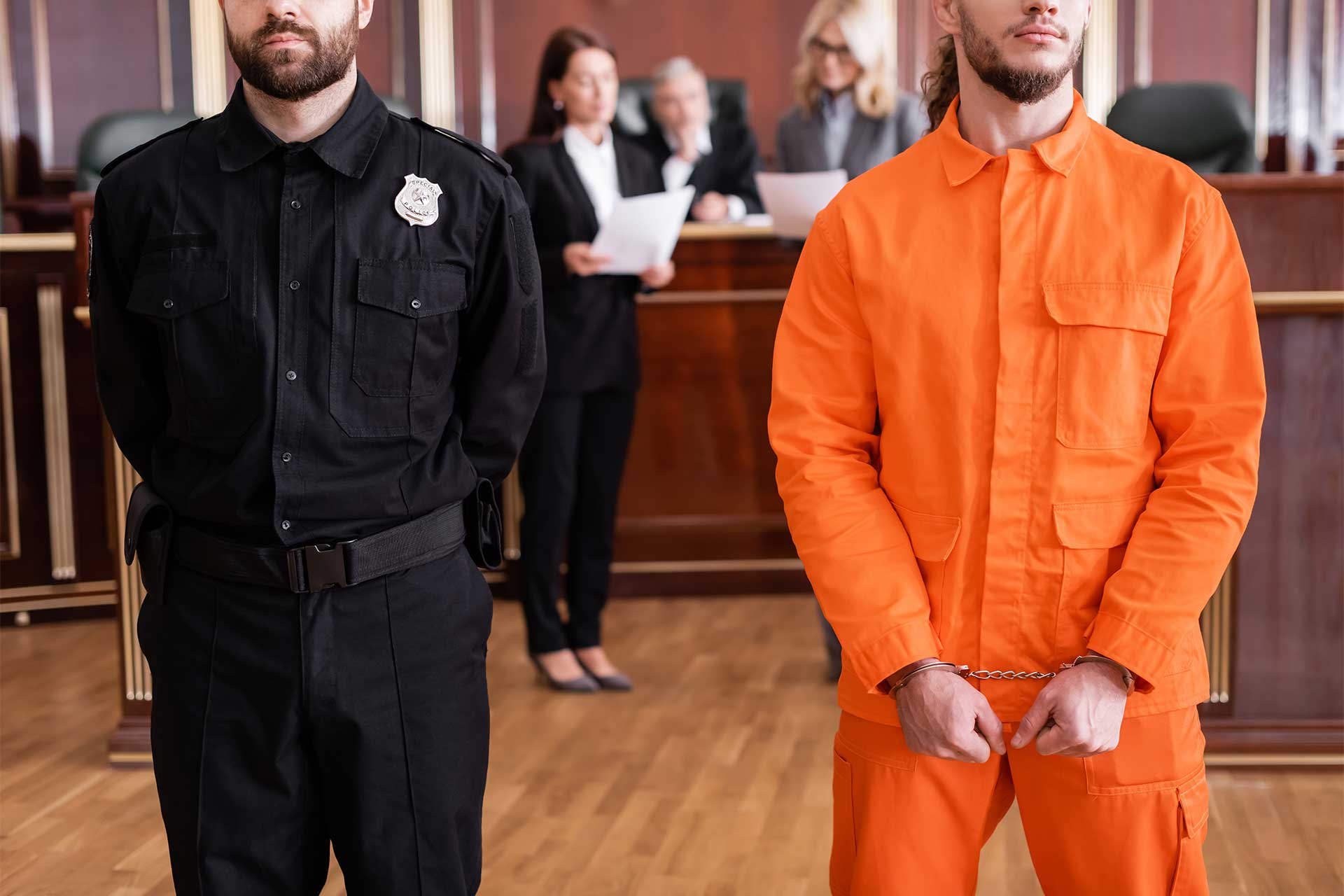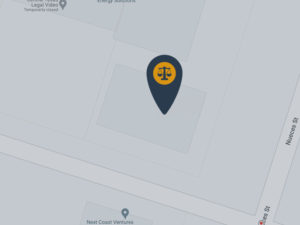
Being falsely accused is a distressing experience that can leave you grappling with emotions and questioning what comes next. The hit to your good name, the emotional weight it carries, and the looming shadow of legal repercussions are more than enough to unsettle even the most resilient individuals. As seasoned criminal defense attorneys, we’ve witnessed just how severely unjust allegations can disrupt the lives of unsuspecting individuals – it’s a struggle few see coming.
It’s also a situation that shouldn’t be faced alone. If you have been falsely accused, we can help. There are several critical steps that should be taken when facing this situation, which we are sharing in detail here today. As with any legal situation, understanding everything involved is critical to navigating the bumpy road ahead and achieving the justice you deserve.
Key Takeaways
- If you’re falsely accused, immediately contact a good criminal defense attorney to guide you through the legal process.
- Gather evidence like emails, texts, videos, and witness contact information to support your innocence.
- Never destroy any evidence or contact the accuser or witnesses; it could make things worse for your case.
- Consider all options with your lawyer before taking action, such as whether to intervene early or take a plea bargain based on the evidence.
- If wrongly accused and cleared of charges, consider suing for malicious prosecution to recover lost money from legal fees and missed work.
Steps to Take If Falsely Accused
If you or a loved one find yourselves on the receiving end of false accusations, it’s crucial to act swiftly and strategically. In this next section, we will cover how to proceed if accused, including pitfalls to avoid. Understanding this information is vital to navigating the challenging legalities ahead, and these steps can significantly affect the outcome – as is demonstrated by this woman’s personal account.
Realize the Seriousness of the Accusations
First and foremost, it’s critical to understand that false accusations are no small matter. They can deeply upset lives, damage reputations, and drain monetary resources. Being falsely accused of a crime is a serious situation.
Also, know that facing false accusations is not just about defending and clearing your name; it also involves dealing with stress and possibly huge legal fees.
We’ve seen how these claims can turn everything upside down. Jobs can be lost, relationships strained or broken, and personal mental health can suffer greatly. At GHC Law, we take every accusation with the utmost gravity because we know the stakes are incredibly high for our client’s future and well-being.
Understand the Cost of Defense
Let’s face it: hiring a criminal defense attorney is an expense, especially given the stakes involved.
Everything about false accusation charges adds up when building a defense, including hiring expert witnesses if needed, paying legal fees, and possibly even a defamation lawsuit if we decide to take that route. It’s a tough pill to swallow, but being prepared for the financial aspect of the situation is as crucial as gathering evidence.
Therefore, it’s essential to consider all options carefully because each move has its own cost implications. For example, early intervention might save some money down the line, while waiting too long could lead to higher costs if the charges pile up. Another example is a plea bargain – it could seem like an easy way out. However, taking this route involves navigating any potential pitfalls with financial impacts in mind. Therefore, it’s critical to weigh every decision against your budget and seek the best outcome without breaking the bank – and we can help.
Intervene Before Charges Are Made
It’s important to act quickly when falsely accused, which includes contacting a criminal defense lawyer right away. For instance, a seasoned defense attorney can stop charges from ever being filed by talking to the prosecutor and sharing proof that may prevent the case from starting.
Gathering evidence is also a critical part of this early action. Your defense attorney will work with you to collect text messages, emails, or any physical evidence that supports your innocence. By doing so, we may be able to show the prosecutor there’s not enough basis for criminal charges – ideally making them drop the matter before it damages your reputation further.
Consider Taking No Action
When you are falsely accused, reacting quickly makes things worse in some cases. You may want to shout your innocence from the rooftops, but staying calm often helps more than you think. Namely, it can stop the situation from getting heated and keep your reputation safe.
Talking with a lawyer should be the first step. For example, at GHC Law Firm in Austin, we might suggest waiting it out after reviewing all the facts, especially if taking action could hurt you more. We take great pride in guiding our clients through these tough times without making them tougher.
The pros at GHC Law know when to act and when to hold off – that’s our job, and we take it very seriously.
Obtain Witness Contact Information
Another critical step to take after being falsely accused is to collect witness contact information. This step helps build a powerful defense, as witnesses can give testimony to support your story in court. For this reason, we take great care in speaking to all potential witnesses and keep their details well-documented for any legal actions.
It’s essential to act quickly and get this information immediately, including names, phone numbers, and addresses. Keeping this data organized ensures that when we need these witnesses, their testimonies are just a call away.
With this approach, we’re prepared to defend your innocence with solid support from those who can verify your side of the story.
Conduct a Thorough Investigation
A thorough investigation of the false accusations is also critical, as every shred of evidence that points to your innocence will need to be collected to build a strong defense. For example, this process can begin with documenting every conversation and interaction tied to the accusation or establishing your alibi when applicable.
From contacting potential witnesses, including character witnesses, and recording their statements to working with forensic experts who can sleuth through digital clues with precision – we have the connections and resources to dig deep and collect every helpful shred of information needed to build a strong defense.
Consider a Plea Bargain Based on Evidence
There are some cases where the evidence collected may not work in your favor. When this happens, a plea bargain can be a smart move. It may save you from a long trial and lower the risk of harsher punishment if convicted. Furthermore, skilled defense attorneys are experts in plea bargains and know how to protect your rights during these talks.
However, all the evidence must be reviewed carefully before making this decision, as it should be based on fact rather than fear or uncertainty.
How to Prove False Allegations in Court

At the heart of a strong defense in court against false allegations lies the strategic gathering and presentation of evidence that dismantles the claims made against you – and this is the stage when having a criminal defense attorney you can trust is critical.
Seek Help From A Criminal Defense Attorney
It’s imperative to find a trustworthy and skilled criminal defense attorney when facing false accusations, like the seasoned defense lawyers at GHC Law in Austin. We have the skills to guide you through the legal maze, including pre-trial investigations and gathering evidence to strengthen our defense. After all, it’s our job to challenge the accuser’s story and show where it doesn’t add up.
A reputable criminal defense lawyer can also advise on whether a private polygraph test could help the case. We understand this process inside and out, so we are equipped to confidently present everything in court to support the case, fighting for justice and protecting your rights every step of the way.
Conduct A Pre-Trial Investigation
Together with a defense attorney, it’s imperative to take action quickly to gather vital information before our trial. This means searching for anything that proves your innocence or questions the accuser’s story. What kind of evidence is helpful in refuting false accusations? Look for videos, emails, photos, and records that show where you were and what you were doing at the time of the alleged incident. Also, gather together a list of people who can say good things about you or may know something helpful.
We also check if there are any texts, social media posts, or other communications from the person accusing you that could make their claims seem doubtful. During this pre-trial phase, it’s crucial to collect as much evidence as possible without crossing legal lines.
Every piece of truth helps build a strong defense against false accusations.
Gather Evidence To Support Your Side Of The Story
Next, we’ll compile every shred of proof collected to show your side of the story. This includes everything gathered during the pre-trial investigation and any other documents available, such as records and receipts that corroborate your side of the story.
We will also look for people who saw what happened or know about it. Their stories can be powerful evidence if they agree to testify. It’s essential to write down everything now while memories are fresh and keep the information organized and safe – it might just turn the tide in court.
Obtain Evidence To Impeach The Accuser
We must also find proof that questions the honesty of our accuser. This involves collecting any information that shows they are not telling the truth or have a reason to lie. We look for past statements where they might have said something different than what they’re saying now.
It’s important to check their background for anything that could hurt their credibility before a judge.
Evidence can also come from other people who know about the situation. Maybe someone knows the accuser has been dishonest before or harbors ill will toward you. Every bit of evidence can help show the court why the accuser shouldn’t be trusted.
Take A Private Polygraph Test
We may also consider taking a private polygraph test. This can show that you’re telling the truth about not being guilty of false accusations. Polygraphs are not always used in court, but they can help our defense team build a strong case for you.
It’s important to work with an expert who performs these tests. They understand how stress affects body language during questioning. A successful polygraph result might persuade others, including the district attorney, that you’re innocent and facing wrongful allegations.
What Not to Do When Facing False Accusations
When dealing with false accusations, it’s important to avoid certain pitfalls that can inadvertently worsen the situation, so let’s review the potential missteps to avoid them.
Destroy Any Evidence
It’s so important – critical even – never to destroy evidence when accused of something you didn’t do. Getting rid of anything might make you look guilty. So, even if some items feel like they could hurt you, please keep them safe. Every piece of evidence matters in showing the truth.
Sometimes, people may tell you to hide or throw away things to help the case. However, it’s best to ignore this bad advice because it can lead to more trouble, like extra charges or making it tougher for your defense team to prove your innocence.
Your credibility and following the law are important, which means leaving all evidence untouched. Rather, always talk with your lawyer before doing anything involving the case.
Contact The Victim Or Witnesses
Although some may be tempted to contact the victim (i.e., the accuser) or witnesses during this process, it’s not a good idea when facing false accusations. In fact, contacting them can worsen the situation, as it could be seen as trying to influence their testimony or intimidate them. If accused, it’s best to let your lawyers handle all communication.
Our legal team knows how to approach witnesses without breaking any rules. We have experience talking to victims and other key people involved in a case, so please trust the legal experts regarding this delicate part of the defense strategy.
Therefore, it’s critical to follow this advice and avoid the victim and witnesses connected with the allegations against you. Doing so helps protect your rights during these tough times.
Talk To The Police, Prosecutor, Or Investigator Without An Attorney Present
This is very important. Please do not ever talk to the police, prosecutors, or investigators alone if you’re falsely accused. Doing so could lead you to say something that seems harmful, as even honest statements can be turned against you in court. For this reason, always have your lawyer present to protect your legal rights and guide you through these tough conversations.
Your defense attorney will protect you against any attempt to twist your words by ensuring no information is provided that could be misinterpreted or used to harm the case. With our expertise, we can confidently manage the interaction and keep you safe from unintentional self-incrimination.
Legal advice is vital and can be relied upon whenever authorities are involved.
Consent To DNA or Other Tests Without An Attorney Present
If the police ask for DNA or other tests, it’s best to wait for your lawyer before saying yes. Your attorney knows the ropes and can tell if the test is applicable to the situation.
Again, defense attorneys are responsible for making sure nothing occurs that might hurt your case later on. That’s our mission, and we take it very seriously.
If you agree to these tests without legal advice, it could backfire. Your lawyer will help you understand the test’s meaning and protect you from making mistakes. It’s critical to always have someone by your side who knows the law inside out when tests like these come up.
Filing a Civil Suit for Malicious Prosecution
When enduring the pain of being wrongly accused, it’s not just about clearing your name; sometimes, it’s also about holding those responsible accountable through a civil suit for malicious prosecution.
This legal action can help you reclaim damages endured from such groundless allegations and address the injustice head-on.
Monetary Compensation For Legal Fees, Lost Salaries, And Therapy Expenses
We know how tough it can be to fight false accusations. The costs add up quickly, from hiring a lawyer to missing work. Therefore, if the charges are found to be groundless, we can sue for the money spent on legal fees, any wages lost because of time off work, and other costs associated with the ordeal. For example, if you seek therapy to help overcome the pain inflicted by the accuser, it’s only fair that these expenses be paid by the person responsible for the malicious act.
Our fight doesn’t stop at clearing your name – you deserve to be made whole again financially. A lawsuit for malicious prosecution can help recover the many costs tied to defending your good name: attorney fees, missed paychecks, and funds for therapy sessions needed due to the stress of false allegations.
It’s about getting back what was wrongfully taken from you during this challenging time.
Reasons for False Accusations

False accusations can stem from a range of deeply personal motivations, often tied to emotional turmoil. Understanding why someone may level unjust charges against you is crucial in both your defense strategy and finding peace amidst the chaos.
Gaining Leverage In Child Custody Battles
In child custody battles, some parents make false accusations to gain an advantage. They might claim the other parent is unfit or has committed crimes like domestic violence. These lies can hurt reputations and have serious legal consequences.
It’s important to act fast and gather evidence if you are accused. You may need records, photos, or witness testimonies to show the court what’s really going on.
Our team suggests always staying calm in these situations. Let your lawyer handle communications with your ex-partner and their attorney. Focus on building a strong defense by documenting everything that could help your case.
Also, always keep any angry reactions away from the children and out of the courtroom, where they could be used against you.
Acting On Strong Emotions Like Anger, Jealousy, Or Revenge
We know how strong feelings can lead to false accusations. For example, someone in your life might feel angry, jealous, or want revenge and lash out with untrue claims. These emotions can blind a person’s judgment and push them to harm others without considering the consequences.
Let’s say an ex-partner is burning with jealousy. They may accuse you of things you never did just to get back at you. Or a coworker who didn’t get that promotion might let their anger take over and create stories to ruin your reputation.
People acting on these emotions are not thinking clearly, and they could drag innocent lives through painful legal battles.
Conclusion
Together, we can stand firm against false accusations. Following these steps can protect your future, and getting the right lawyer can make all the difference.
If a lie has put you in hot water, contact an attorney and gather your evidence now. Don’t let someone else’s words ruin what you’ve worked for. Act today, as your peace of mind is worth fighting for!
Contact GHC Law for a legal consultation about false accusations.
FAQs
1. What should I do if someone falsely accuses me of a crime?
Get a good defense attorney to help prove your innocence in the criminal justice system and protect you from a wrongful conviction.
2. Can I sue someone for defamation if they lie about me?
Yes, you can file a civil lawsuit for libel and slander if their false words harm your reputation or cause other damages.
3. Should I plead guilty to stop false accusations?
Never plead guilty if you are innocent. It could lead to a criminal record and the assumption of guilt instead of innocence until proven guilty.
4. How does expert testimony work in defending against false accusations?
Expert testimony helps show reasonable doubt by giving facts supporting your side in criminal and civil proceedings.
5. What is privileged communication, and how does it affect my case?
Privileged communication protects certain conversations, like those with lawyers, from legal proceedings so no one can use them against you unfairly.
6. If I am wrongfully terminated due to false sexual harassment claims, what can I do?
You might have an employment contract or be part of a collective bargaining agreement; contact the EEOC or a lawyer to sue for a personal injury claim for pain and suffering caused by retaliation.


